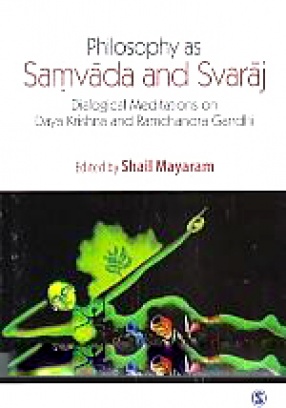A study and postmodern critique of Mahasweta Devi’s major fictional writings on tribals, The Subaltern Speaks addresses some primary concerns of Subaltern Studies historians and explores the representation of tribal people as ‘subaltern’.
Adivasis today are caught between an aggressive and seemingly benevolent version of capitalism, although the lines between the two have increasingly blurred. British India created formal property rights to replace customary ones; neoliberal India chased them off their land in pursuit of development, dubbed them ‘terrorists’ and unleashed the army’s might against them. Adivasis have only seemed to appear in recorded history when resisting the state, and their ‘consciousness’ has been reduced to this identity along with their politics. The story of adivasi women is far more harrowing.
Following Gayatri Spivak’s deconstructive approach, Sanatan Bhowal draws upon some leading thinkers of our time-Badiou, Levinas, Foucault, Deleuze, Lacan and Zizek-to address Spivak’s question: Can the Subaltern Speak? Using this heterogenous assemblage of ideas as a backdrop-in which Badiou’s philosophy of truth, resistance and responsibility for the ‘other’ figure prominently-he focuses on Devi’s ethical representation of the adivasis she has loved, lived with and whose cause she has passionately espoused lifelong. He also underlines the need to unthink conventional discourses before any genuine understanding of tribal consciousness can be arrived at.
The volume will be of interest to scholars and students of Subaltern Studies, English and Comparative Literature.
Contents: Foreword by Shail Mayaram Preface by Snehal Shingavi. Introduction. 1.The Subaltern Speaks from History : The Right of the Forest, Hulmaha, To the Call of Shalgira. 2.Contingent Resistance of the Subaltern: Chotti Munda and His Arrow. 3.The Subaltern Speaks the Political: Bashai Tudu. 4.The Silent Voice of the Subaltern Pterodactyl. 5.Voices of Subaltern Women: Draupadi, Douloti, Dhouli, Mary Oraon, The Mother of Hulmaha, Shanichari.6.The Small Subaltern Voices: Witch, Salt, Little Ones, Sagoana. Conclusion. Bibliography.








There are no reviews yet.